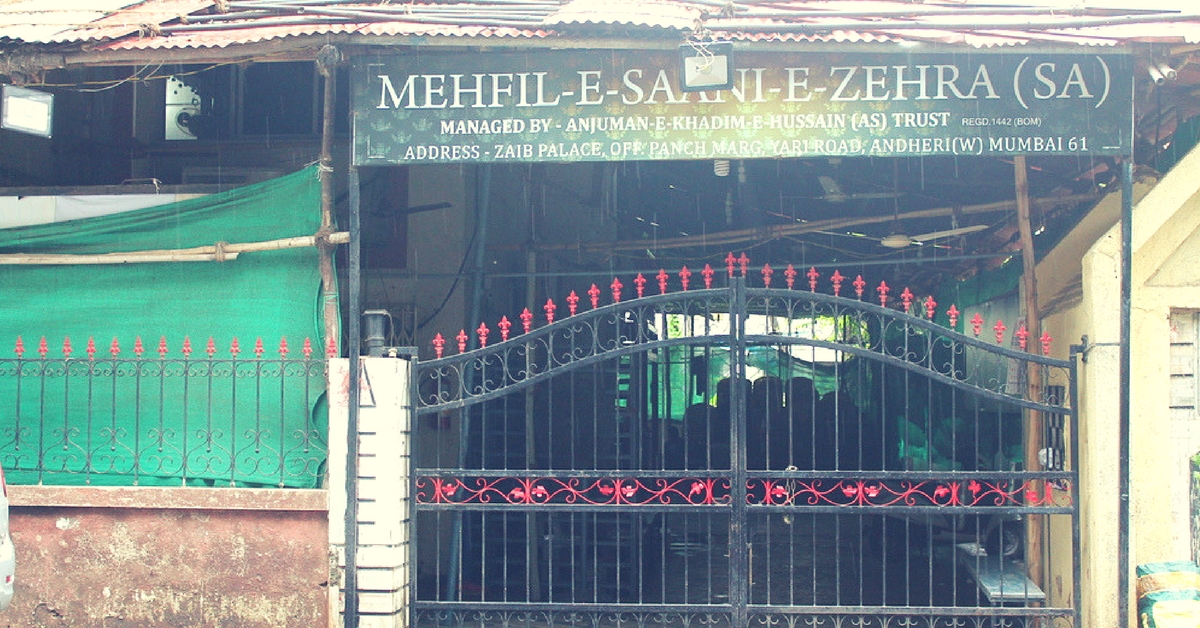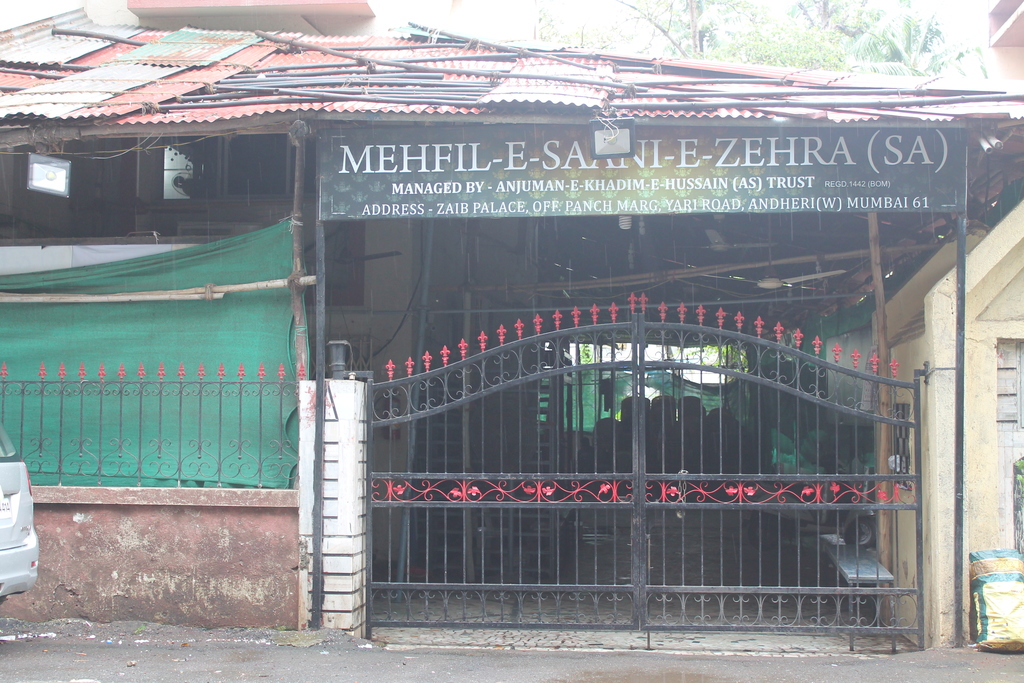Empowering Women Through Her Friday Sermons: Meet Yari Road Mosque’s Ulema Uzma Baqir
Uzma Baqri, is among the first ulemas engaging with young Muslim women and girls and working towards their upliftment.

When women assemble at Yari Road’s Zaib Palace mosque, in Mumbai, to offer namaz on Fridays, the Maulana usually offers a khutbah (sermon) before the Jumme ki namaz. He speaks about the concepts of ‘deen’ (knowledge of religion) and ‘duniya’ (world).
For the longest time, no other mosques in Mumbai opened its gates to woman ulemas (Islamic Scholars) to join these Friday sermons.
Zaib Palace’s Mehfil-e-Saani-e-Zahra masjid has been recognised at the first mosque in Mumbai encouraging Shia women to stand shoulder-to-shoulder with their male counterparts and impart knowledge of the scriptures to Muslim women.

As a religious leader, Maulana Mohammed Fayyaz Baqri has been conducting activities at the Versova mosque for over eight years. His wife, Uzma Baqri, is among the first ulemas engaging with young Muslim women and girls and working towards their upliftment.
She offers sermons on a wide array of topics, with more emphasis on women’s education and the role of women in Islam.
“I conduct classes on the Quran at the mosque for girls from 5 to 15 years of age. From reading the Quran surah (chapter) wise to understanding every ayat (verse) within it, I help them pray meaningfully,” says Uzma.
Read more: Meet Priyanka, The Fiery 23-Year-Old Woman Pradhan Standing Tall in Rural UP
Women at the mosque are taught the importance of educating and empowering themselves to pass their knowledge and principles down to their children.
“Be it a single parent or a working woman, the attachment of the kid is always more to the mother than the father. The reflection of this, lies in the fact, that the language that a person speaks is always referred to as their ‘mother’ tongue. If the father in the household is highly educated but the mother is illiterate, how will she contribute to the growth of her child?” asks Maulana Baqri.
One can only pass down the knowledge they possess in the first place to their children. Only then will they be able to raise their children right, believe the Baqris. The idea is to live the true teachings of Islam and strike a balance between ‘deen’ (knowledge of religion) aur ‘duniya’ (world),” he says.
The sermons last for about 40 minutes. While deen talks about how one can lead their life as a righteous citizen by doing social service, duniya is a mirror to the ongoing happenings in society.
You may also like: How One Home Maker Became a Paddy Farmer, Floriculturist and a Village Leader
In addition to making them aware of the present happenings, it also sensitises them against terror outfits like Daesh and ISIS.
“When Isis started terrorizing the world, we made the people aware of how, the attacks were unjust and we condemn them. How a terror outlet under the fake disguise of religion, was ruining the name of the entire community. The xenophobia and the labels that emerged in the media against the entire community, due to these happenings, deeply hurt the community,” says Fayyaz Baqir.
Speaking about the importance of women in Islam, Uzma feels the concept of hijab has been misconstrued for the longest time. While there’s a certain section of the world that believes the hijab or the purdah system is a restriction to Muslim women, the Baqris have an alternate perspective.
“Hijab is not a restriction, in fact it means azaadi (freedom). If Islam had restrictions on women, the hijab wouldn’t have been needed in the first place. If the women were restricted to their homes, they wouldn’t wear hijabs in front of their own father or brothers. Like VIPs in society need added security, the hijab merely acts as a means of protection for the women in everyday world where violence against them is on the rise,” says Maulana Baqri.
Challenging societal stereotypes, he also speaks about Islam having no concept of restricting women to the kitchen. “Islam says it is the husband’s duty to provide for his wife and children. The wife is to protected as one would, a flower. If she does not want to do household chores, the husband has no authority to force her. He should help her out instead. Women have to be given the freedom to be who they are and achieve their full potential and the most important stepping stone to achieve is to educate them.”
They emphasise the importance of moving beyond the mentality that women are meant for only childbearing and rearing. “We are here to challenge misconceptions about Islam. The idea is to spread knowledge to curious minds without resorting to conversion,” says Uzma.
Shedding light on the education that women receive to become ulemas, Uzma says women are also taught the same way as their male counterparts train to become maulanas. She received her taalim (training) from Iran. Indian madrasas also educate women to take up the role.
In her final message to women, the woman cleric says, “Gain knowledge and empower yourselves enough to pass your knowledge and principles down to your kids. By educating and empowering one woman, we are in turn empowering an entire generation.”
Like this story? Or have something to share?
Write to us: [email protected]
Connect with us on Facebook and Twitter.
NEW: Click here to get positive news on WhatsApp!
If you found our stories insightful, informative, or even just enjoyable, we invite you to consider making a voluntary payment to support the work we do at The Better India. Your contribution helps us continue producing quality content that educates, inspires, and drives positive change.
Choose one of the payment options below for your contribution-
By paying for the stories you value, you directly contribute to sustaining our efforts focused on making a difference in the world. Together, let’s ensure that impactful stories continue to be told and shared, enriching lives and communities alike.
Thank you for your support. Here are some frequently asked questions you might find helpful to know why you are contributing?


This story made me
-
97
-
121
-
89
-
167











